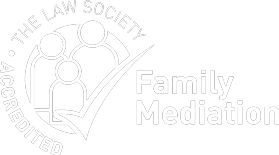Smith v Lancashire teaching Hospitals – Another positive step for cohabiting couples
If you live with someone in a committed relationship, share your home and your lives – perhaps have children together – you’ll be protected if things go wrong – Right?
Wrong. It’s a common misconception, and causes real distress, not to mention financial hardship, in a whole variety of situations – relationship breakdown, of course, but also in bereavement. Cohabiting couples have no rights – they are not recognised in the intestacy rules, nor, it appears, under the Fatal Accidents Act 1976 which affords a payment to a bereaved spouse following negligence, but not to a cohabiting partner.
It’s something that Jakki Smith discovered, when her long term partner died from an infection that medical staff did not spot: “Until John died I hadn’t realised that our relationship would be treated any differently” – and the same is true for many, many couples.
Bereavement damages position breaches Human Rights
As one of the many people who discover they have no rights on the death of their partner, Jakki Smith decided to pursue the matter.
The Fatal Accidents Act 1976 gives a right of action for the benefit of ‘dependants’ of someone who has died as the result of negligence. However, section 1A(2)(a) specifies that a claim for damages for bereavement is only available to the husband, wife or civil partner of the deceased. This meant that when Jakki Smith’s partner of 11 years passed away as the result of an infection which was not spotted and treated effectively by medical staff, she was not eligible for bereavement damages (which are currently fixed at £12,980).
Faced with the position in the legislation, Ms Smith brought a challenge in the High Court that the provision of the Fatal Accidents Act 1976 was incompatible with the European Convention of Human Rights, specifically, Articles 8 (right to respect for private and family life) and Article 14 (principle of non-discrimination). The High Court judge rejected her claim, saying that although the law needed to be reformed, there was no incompatibility with the ECHR.
The Court of Appeal disagreed and allowed the claim. It is not always the case that a relationship will be treated as analogous to marriage for the purposes of Article 14 of the ECHR – this will depend on the context. However, in its judgement, the Court of Appeal decided that in this case “…the intimacy of a stable and long term personal relationship, whose fracture due to death caused by another’s tortious conduct will give rise to grief which ought to be recognised by an award of bereavement damages, and which is equally and analogously present in relationships involving married couples and civil partners and unmarried and unpartnered cohabitees.”
Dependency claims do recognise cohabitees
Interestingly, the Fatal Accidents Act does recognise cohabitees in section 1 – damages can be paid for the benefit of dependants, which includes someone who was living with the deceased as a spouse or civil partner for the 2 years immediately preceding the death. However, cohabitees are not recognised in the provisions for bereavement damages – only spouses/civil partners or parents of a minor – both parents for a legitimate child, but only the mother of a child whose parents were not partnered at the time. This raises another question about the rights of a father, but not for this blog.
In this case, Ms Smith had already received dependency damages through a settlement with the responsible NHS Foundation Trust. She did not gain financially from pursuing the question of her entitlement to bereavement damages, but felt very strongly that
“There’s no longer a taboo around being unmarried. Attitudes have changed, society has moved on and the law needs to be changed to reflect that.
“Nothing will bring John back, but he was a firm believer in everyone being treated equally and I think he would have agreed with me that this is worth fighting for … My fight has never been for the money – it’s about having meaningful relationships recognised.”
The fact that Jakki Smith had to go to court to achieve this result demonstrates yet again that what we really need is proper legal protection for committed couples who choose not to formalise their relationship through marriage or (in the case of same sex couples) civil partnership. The stress of dealing with your partner’s bereavement, or a relationship breakdown, is bad enough, without then having to take legal action. It was something of an irony that the Court of Appeal delivered its judgement during Cohabitation Awareness Week , but perhaps it will bring home the need for a better solution to protect cohabiting couples than piecemeal legal arrangements and court cases…











